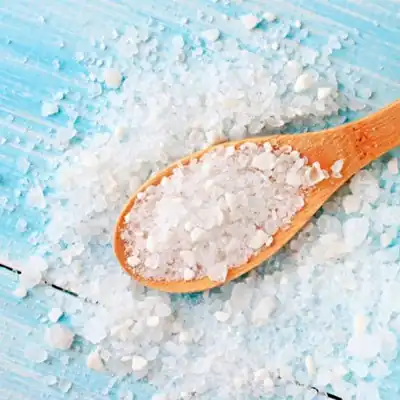I. Basic Functions and Mechanisms

- Anti-Caking Agent: Magnesium carbonate prevents powdered foods from clumping by absorbing moisture, thus maintaining their looseness and flowability. It works by absorbing moisture from the air or forming a hydrophobic layer on the surface of particles. It is suitable for the production and storage of powdered foods such as flour, salt, and milk powder [i].
- Leavening Agent: In baked goods, magnesium carbonate reacts with acidic substances (such as citric acid) to produce carbon dioxide gas, which causes the dough to expand and form a soft, porous structure. This property is widely used in baked goods such as cakes and breads to improve the taste and appearance [i].
- Acidity Regulator: Magnesium carbonate is alkaline and can neutralize acidic components in food, adjusting the pH to neutral or slightly alkaline. For example, adding magnesium carbonate to beverages or dairy products can optimize the taste and extend the shelf life [i].
- Nutritional Supplement: As a source of magnesium, magnesium carbonate can supplement the minerals needed by the human body. Magnesium is involved in more than 300 enzymatic reactions and plays an important role in cardiovascular health, nerve function, and muscle contraction. It is especially suitable for sports foods and nutritional fortifiers [i].

II. Specific Application Examples
- Flour Improvement: The addition amount is usually 0.5% (that is, 0.5kg is added to every 100kg of flour), which can improve the elasticity, extensibility and processing performance of the dough, and extend the shelf life of pasta products. China’s GB 2760 stipulates that the maximum addition amount in flour is 5.0g/kg [i].
- Salt Anti-Caking: Magnesium carbonate is added to salt as an anti-caking agent to prevent moisture absorption and agglomeration. Its hygroscopicity and fluidity optimize the storage and use convenience of salt [i].
- Sports Foods and Beverages: In sports drinks, magnesium carbonate supplements electrolytes (such as magnesium ions) and relieves muscle cramps, with a typical addition amount of about 25g/100L [i]. In sports nutrition products, magnesium carbonate provides magnesium to support energy metabolism and neuromuscular function [i].
III. Regulations, Standards, and Safety Limits
- Chinese Standards (GB 2760): Magnesium carbonate (CNS 13.005) is allowed to be used as a flour treatment agent, leavening agent, and anti-caking agent, with a maximum addition amount of 5.0g/kg in flour [i].
- International Standards: The European Union has approved magnesium carbonate as a food additive (E504) [i]. The US FDA does not explicitly restrict it but requires compliance with GRAS (generally recognized as safe) standards [i].
IV. Comparison with Other Magnesium Source Additives
| Indicator | Magnesium Carbonate | Magnesium Oxide | Magnesium Citrate |
| Food Function | Anti-caking, leavening, acidity regulator | Acidity regulator, nutritional supplement | Nutritional supplement (high absorption rate) |
| Absorption Rate | Medium (weaker than magnesium citrate) | Low | High (approximately 30%) |
| Applicable Scenarios | Baked goods, powdered foods | Dairy products, health products | Sports drinks, medical supplements |
| Stability | High (high temperature resistance, excellent processing performance) | Medium | Low (easily soluble in water) |
Magnesium carbonate has better stability and versatility in food processing than magnesium oxide, but magnesium citrate has a higher absorption rate in terms of nutritional supplementation [i].
V. Summary and Recommendations
The core value of magnesium carbonate as a food additive lies in:
- Versatility: It has anti-caking, leavening, acidity regulating, and nutritional supplementing effects [i].
- Safety: Its use is recognized by domestic and foreign regulations, and the decomposition products (magnesium oxide, water) are non-toxic [i].
- Economy: The cost is low and the addition amount is controllable (such as ≤5.0g/kg in flour) [i].
Recommendations:
- In baked goods, magnesium carbonate should be preferred as a leavening agent [i].
- When magnesium needs to be supplemented in sports drinks, magnesium citrate can be considered to be mixed to improve the absorption rate [i].
- Strictly follow the addition amount limits of GB 2760 or EU E504 [i].
